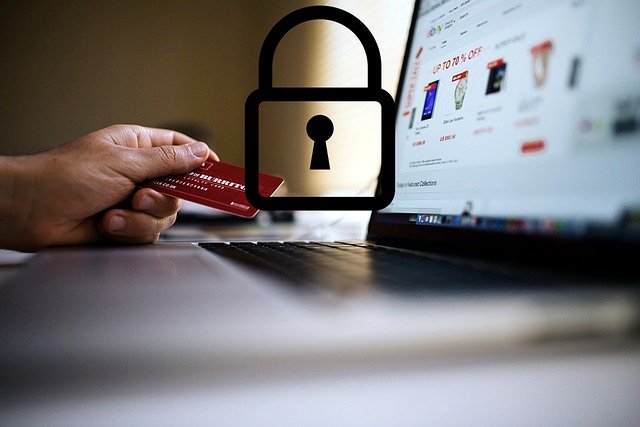Understanding Online Bank Accounts: Features, Benefits, and Operation
Opening an online bank account provides a simple way to handle money through secure digital platforms. Users can deposit checks, transfer funds, pay bills, and track balances anytime. Designed for convenience, these accounts combine modern tools with security to make everyday banking easier.

How do online bank accounts operate?
Online bank accounts function similarly to traditional bank accounts but with a digital-first approach. Instead of visiting a physical branch, customers manage their accounts through websites or mobile apps. When you open an online bank account, you typically provide personal information, verify your identity, and link an existing bank account to make an initial deposit.
Once your account is set up, you can perform various transactions electronically. These may include checking your balance, transferring funds, paying bills, and depositing checks using mobile check capture. Online banks use advanced encryption and security measures to protect your personal and financial information during these transactions.
What are the key features of online bank accounts?
Online bank accounts offer several distinctive features that set them apart from traditional banking:
-
24/7 accessibility: You can manage your account anytime, anywhere, as long as you have an internet connection.
-
Mobile banking apps: Most online banks provide user-friendly apps for smartphones and tablets, allowing you to bank on the go.
-
Electronic transfers: You can easily move money between accounts or send funds to other people using various electronic transfer methods.
-
Bill pay services: Many online banks offer free bill pay features, allowing you to schedule and automate payments to service providers and creditors.
-
Mobile check deposit: You can deposit checks by simply taking a photo with your smartphone, eliminating the need to visit a branch or ATM.
-
Budgeting tools: Some online banks provide built-in budgeting and financial management tools to help you track spending and set financial goals.
What benefits come with opening an online bank account?
Opening an online bank account can offer several advantages:
-
Higher interest rates: Online banks often provide higher interest rates on savings accounts and certificates of deposit (CDs) compared to traditional banks, as they have lower overhead costs.
-
Lower fees: Many online banks charge fewer fees or offer accounts with no monthly maintenance fees, minimum balance requirements, or overdraft fees.
-
Convenience: The ability to bank from anywhere at any time eliminates the need to visit physical branches during business hours.
-
Quick account opening process: You can often open an online bank account in minutes, with minimal paperwork and a streamlined application process.
-
Enhanced financial tracking: Digital banking platforms typically offer robust transaction history and spending analysis tools, making it easier to monitor your finances.
-
Integrated services: Some online banks provide seamless integration with other financial services, such as investment accounts or money management apps.
Are there any drawbacks to consider with online bank accounts?
While online bank accounts offer numerous benefits, there are a few potential drawbacks to keep in mind:
-
Limited in-person services: If you prefer face-to-face interactions or need services like notarization, an online bank may not meet all your needs.
-
Cash deposits: Some online banks may not have convenient options for depositing cash, which can be a concern for those who frequently deal with physical currency.
-
ATM access: While many online banks offer ATM access through partner networks, you may have fewer fee-free ATM options compared to large traditional banks.
-
Technology dependence: Online banking relies heavily on internet connectivity and digital devices, which may be challenging for those less comfortable with technology.
How do online bank accounts compare to traditional bank accounts?
Online bank accounts and traditional bank accounts each have their strengths and may suit different financial needs:
| Feature | Online Bank Accounts | Traditional Bank Accounts |
|---|---|---|
| Interest Rates | Often higher | Generally lower |
| Fees | Typically lower or none | May have more fees |
| Branch Access | Limited or none | Extensive network |
| ATM Network | Partner networks | Own ATM network |
| In-Person Services | Limited | Full range of services |
| Mobile/Online Banking | Primary focus | Available, but may be less advanced |
| Account Opening | Quick, online process | Can be done in-person or online |
| Cash Deposits | May be challenging | Easy at branches and ATMs |
Prices, rates, or cost estimates mentioned in this article are based on the latest available information but may change over time. Independent research is advised before making financial decisions.
How secure are online bank accounts?
Security is a top priority for online banks. They employ various measures to protect your information and funds:
-
Encryption: Banks use advanced encryption technology to safeguard data transmission between your device and their servers.
-
Multi-factor authentication: This additional layer of security requires you to verify your identity through multiple methods before accessing your account.
-
Fraud monitoring: Online banks use sophisticated algorithms to detect and prevent fraudulent activities.
-
FDIC insurance: Most reputable online banks are FDIC-insured, protecting your deposits up to $250,000 per account ownership category.
While online bank accounts offer robust security features, it’s essential to practice good cybersecurity habits, such as using strong passwords and avoiding public Wi-Fi for banking activities.
Online bank accounts provide a modern, convenient approach to managing your finances. With their competitive rates, low fees, and user-friendly interfaces, they offer an attractive alternative to traditional banking for many consumers. However, the choice between an online and traditional bank account ultimately depends on your individual financial needs and preferences.




